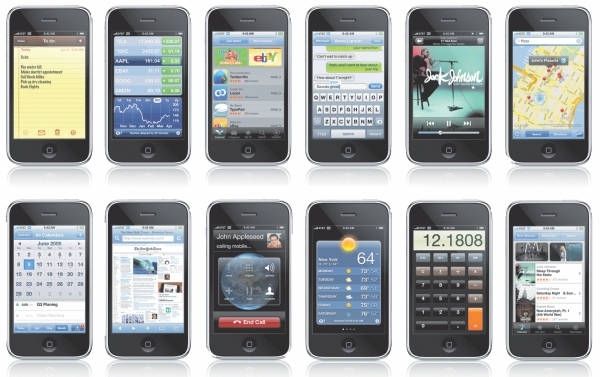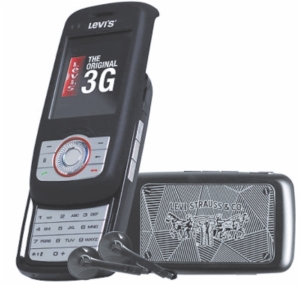| Home - Back Issues - The Team - Contact Us |
 |
| Volume 11 |Issue 14| April 06, 2012 | |
|
|
Sci-Tech BD Going 3G BTRC expects to generate USD 1.5 billion from the 3G venture but the question remains, is it really that lucrative a venture? Sharmin Ahmed The digital revolution has finally started, albeit at a slow and steady pace, and the Bangladesh Telecommunication Regulatory Commission (BTRC) has been keeping up with its baby steps. Ever since the use of mobile phones has mushroomed all over the country at an unimaginable pace, the demand for various applications has increased. Now it is not just SMS, calls, music and the camera, but the use of the internet and applications like video calls that have gone viral across the world. This is where the 3G mobile telecommunications services come to the forefront. Neyeem Uddin who has come to Dhaka to study talks everyday via mobile phone to his parents in Rangpur. However, given that he is not earning much from tutoring and paying for his education himself, he cannot afford internet connection or even a computer. Thus, to be able to see his parents he has to wait until semester breaks when he can go back to his village in Rangpur. For Nayeem the prospect of a 3G phone is fabulous, he will be able to video chat with his parents as opposed to waiting for months. He says, "If the offer comes from Teletalk, then I will be able to get a 3G phone at a reasonable price, since it is state owned and is subsidised.” Kamrul Hasan, who is a Billing Specialist at GPIT at Grameenphone Ltd says, "A 3G or the 3rd Generation mobile phone basically offers a wide array of services including applications that allow wide-area wireless connections so that one can send and receive voice mails, video calls, get mobile internet access, and even enjoy mobile TV. Meaning literally the world is in your mobile."
BTRC has finalised the draft of the guidelines for providing 3G telecommunications and a mobile service licence, with options to upgrade to 4G and Long-Term Evolution (LTE) without any extra fees. This means local companies who acquire the licence can provide all the 3G services along with their regular services. All five local operators in the country have so far been providing 2G service in mobile phones. In the draft, BTRC also proposes to issue a 3G mobile communication license to the operators which include the state-owned operator Teletalk, three local private operators and one foreign operator. Zia Ahmed Chairman of BTRC says, "This will facilitate advanced use of mobile services for faster and better communication." BTRC very recently submitted its final draft of 3G licensing guidelines to the Ministry of Posts and Telecommunications (MoPT). It aims to earn around USD1.5 billion in spectrum fees through an open auction later this year from four licences alongside a fifth concession award to Teletalk. According to the BTRC's proposed 3G guidelines, each operator has to spend Tk 100 million in license fees, Tk 1.5 billion as a bank guarantee and Tk 0.5 million in application fees. The base price of per MHz spectrum is fixed at USD30 million which means each telecom operator has to pay USD300 million for a 10 MHz spectrum. In addition to this, each operator has to spend Tk 50 million in license renewal fees each year. The operators will also have to share 5.5 percent of revenue earned and one percent in social obligation fees. The BTRC Chairman also informs that the regulatory body will float 3G advertisements in May and the final list will be officially announced in July this year. The auction will be held in September after receiving the bidding money, he mentions. Therefore, this is a venture that means big spending for the providers.
However the potential for the 3G service and license is not clear to local operators. They believe the guidelines will first have to be reviewed before being able to tell if it will be profitable to invest in them. Syed Tahmeed Azizul Huq, Head of Corporate Communications of Grameenphone Ltd, says, "We have not seen the guideline and hence are unable to discuss much on the 3G license. It may be mentioned that we have not received our renewed 2G license yet; therefore, there is no point of contemplating about 3G licenses at this point in time." Once the Cellular Mobile Phone Service (3G/4G/LTE) Regulatory Licence Guideline 2012 is cleared, 3G licence holders will be able to upgrade their licences to 4G or LTE at no extra cost. This is good news to particularly the potential subscribers who will immediately want to jump to the already out 4G technology. Nafiz Iqbal, a Bangladeshi who currently lives in Alberta, Canada, and uses a 4G phone, says, "The move from 2G to 3G is good, I have used 2G, 3G and am currently using a 4G. There is hardly any difference between a 3G and a 4G phone. I believe people should wait until it fully develops before they switch to it so they can actually benefit from it. Hopefully this will turnout to be a good move for Bangladesh as long as the network can be maintained and the switch will be affordable to the masses." The BTRC chairman also mentions that most of the country has already been brought under the telecommunication network and internet service which already reaches the upazila level through different ways such as ISP, WiMAX and mobile internet. "Optical fibre connections have been set up in areas over 15,000 kilometres across," says Ahmed. He also adds that there are some 2.81 crore internet subscribers in the country and he is optimistic about the prospects of this 3G venture. The 3G technology will make mobile telephone use more efficient, with high-speed data transfer facilitating users to watch mobile TV, make video calls, use navigation equipment and have access to many other services. Syed Rakib Al Hasan, who is a Software Engineer at a local software company, says, "3G services in the country would be a major leap in online video streaming. The Education sector can benefit from this greatly. In addition, many people have smart phones nowadays. Even a lot of low cost phones have smart phone abilities, meaning they can handle 3G services. But if data streaming is unregulated, people would exploit the service." In August last year, a high-profile meeting of senior ministers and advisors chaired by the Prime Minister Sheikh Hasina took the decision to auction the wireless telecom spectrum to facilitate nationwide spread of 3G technology and wireless broadband services. It is a bit too early to tell if indeed the release of 3G mobiles will be beneficial to Bangladesh, but it is obviously the next step to take if we want to keep up with this continually evolving world.
|
|
|

 The national 3G mobile licence auction will be held in June 2012. Ahmed, says, "Two consultants for conducting the auction have been selected from a shortlist of five, and that the first appointment should be finalised soon."
The national 3G mobile licence auction will be held in June 2012. Ahmed, says, "Two consultants for conducting the auction have been selected from a shortlist of five, and that the first appointment should be finalised soon."